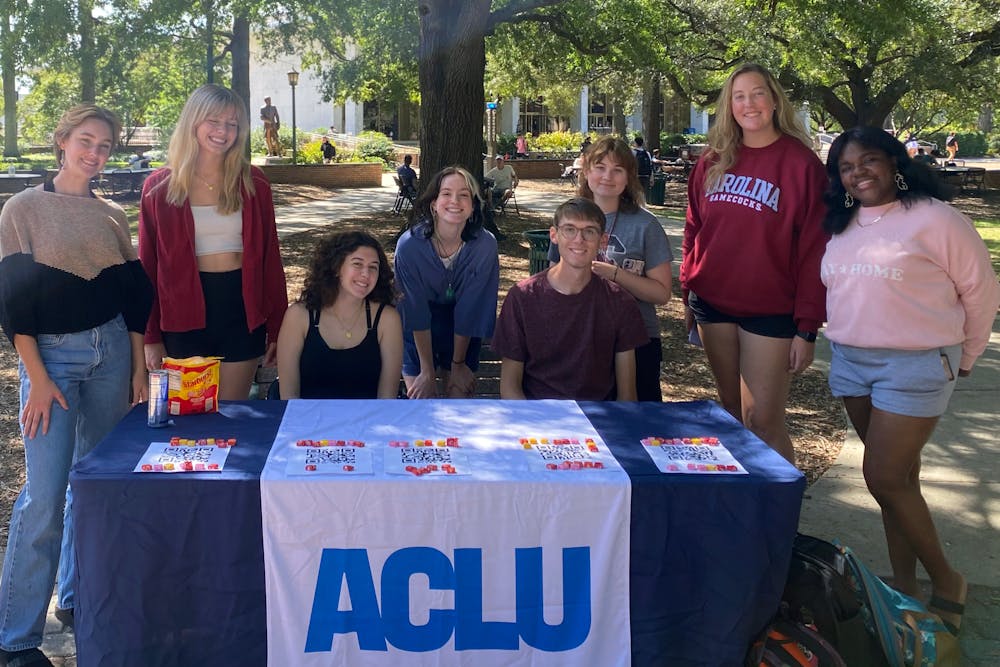As the midterm elections on Nov. 8 get closer, campus experts and leaders encourage students to exercise their right to vote, be informed about who and what they're voting for and believe that their vote matters. Campus experts and leaders are also taking steps to prepare students to vote, and be good voters, at that.
Midterm elections occur halfway through a presidential term and are comprised of races for every seat in the U.S. House of Representatives and about a third of the U.S. Senate.
In addition to local and district-wide races, there are nine statewide races happening in the state of South Carolina, two of the most divisive being the election for governor and the battle for one of South Carolina's two U.S. Senate seats.
Democratic candidate Joe Cunningham is challenging incumbent Governor Henry McMaster, who is running for his second full term as the state's chief executive. Meanwhile, State Representative Krystle Matthews is running against Senator Tim Scott, who has served for nearly a decade in the Senate.
Grace Thompson, the president of the USC chapter of the ACLU, said there is a lot hanging in the balance with this election with issues like reproductive rights and education figuratively on the ballot this fall. After the overturn of Roe v. Wade, many local elections are determining how states will approach reproductive rights.
On Oct. 18, state senators will meet to formulate a response to the state House of Representatives' vote to pass a near-total abortion ban, which was largely supported by Republican members.
“It’s very important right now," Thompson said. "Younger people, younger women right now are concerned about the state of South Carolina, just reproductive justice."

Dr. Kirk Randazzo, the chair of the Political Science Department at USC, thinks that students should not only be worried about specific hot-button issues when preparing to vote, but positions that tend to fly under the radar, such as secretary of state or local voter registration commissioner.
"Those individuals have a tremendous amount of influence in how a state sets up and runs its election, and a lot of those positions don't register with the average voter. They just pick somebody maybe based on a party affiliation, and that's it," Randazzo said.
Organizations on campus are working to get students prepared for the upcoming election. The ACLU chapter, for example, has set up a voter drive to make sure students are registered to vote and give information on absentee and early voting Thompson said first-time voters should get to their polling places early and avoid the long lines on Election Day.
Caley Bright, the president of the campus NAACP chapter and a third-year criminology and criminal justice student, said the NAACP has held three successful voter drives on campus so far in this academic year, and plans to hold another in the larger Columbia area in the coming weeks.
“We also want to start the conversation and getting people to think about why they vote … we just were told to vote when we grew up, we weren’t told why,” Bright said. "I think that we are, right now, one of the most focused-on groups," Bright said, adding, "All policies really affect our age group."
In addition to student advocacy, faculty on campus have made efforts to support USC students in becoming more informed, better voters. Randazzo said his department has hosted a series of debates at USC with people of different party affiliations.
"(We) have them come together in a very civil way to actually discuss ideas and not demonize the other person because they hold a different view," Randazzo said.
In addition to these debates, Bright's voter registration drives have fostered a sense of community and friendly camaraderie on campus. Bright said that activities like NAACP's voter registration drives on campus are important.
"It's really all about seeing your friends do it and seeing your community do it. And so I think that if we start a healthy conversation about voter registration drives and all these other things that we do, it'll be normal," Bright said.
According to a study from Tufts University, 50% of eligible voters ages 18-29 voted in the 2020 election, up 11 points from the 2016 election. With over 60% of these voters favoring Biden, young people were influential in key swing states during the presidential election.
Randazzo said he believed in the underrated influence of a vote, especially with the number of eligible student voters on campus.
“If 10,000 votes decided an election in South Carolina, USC has a student population of 30,000. We could actually sway that vote,” Randazzo said.
Thompson said that, while election season can be an overwhelming time for many, she reminds students, “don’t be intimidated, ... and just know that this is your right and they can’t infringe upon that.”
South Carolina natives can find their voting location at https://scvotes.gov/. Out-of-state students at USC must register to vote in the state of South Carolina if they want to vote in the South Carolina elections. Information on that can be found at https://www.usa.gov/change-voter-registration.

